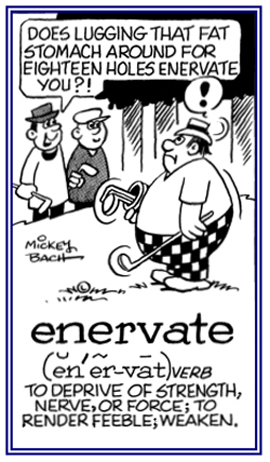nervo-, nerv-, nervi-
(Latin: nerve fiber or sinew, nerves)
adnerval (adjective) (not comparable)
1. Describing a medical process directed towards a nerve: The adnerval operation involved an electric current which went from a nerve to a muscle, and then passed through it.
2. Referring to something located near a nerve: The ganglion on Jane's hand evidently was quite adnerval because it was very painful for her so she had it surgically removed.
2. Referring to something located near a nerve: The ganglion on Jane's hand evidently was quite adnerval because it was very painful for her so she had it surgically removed.
ansa nervorum spinalium
Connecting loops of nerve fibers between the anterior spinal nerves.
ansae nervispinalis, ansae nervorum spinalium
Loops of nerve fibers connecting anterior spinal nerves.
The eighth cranial nerve, or vestibulocochlear nerve (relating to the vestibule and the cochlea of the ear): The auditory nerves connect the inner ear with the brain.
The auditory nerves innervate the ear and carry impulses relating to both sound stimuli and balance to the brain.
The nerves in the armpits: Some of the fibers of the axillary nerves supply the capsules that surround the shoulder joints with connective tissue.
When Sally's little brother tickled her axillary nerves, she couldn't keep herself from laughing and, after a while, it started to be painful to laugh so much!
cranial nerves
The twelve nerves of the brain, that emerge from or enter the skull (the cranium) as opposed to the spinal nerves; which emerge from the vertebral column:
- Olfactory nerve (carries impulses for the sense of smell from the nose to the brain).
- Optic nerve (carries the impulses formed by the retinas of the eyes which are dispatched through the optic nerve to the brain and interprets them as images).
- Oculomotor nerve (nerve supply to muscles around the eyes and upper eyelid muscle which raises the eyelid; the extraocular muscle which moves the eye inward; and the pupillary muscle which constricts the pupils).
- Trochlear nerve (nerve supply to the superior oblique muscles of the eyes, one of the muscles that moves the eyes; the only cranial nerve that comes from the back of the brain stem and follows the longest course within the skull of any of the cranial nerves).
- Trigeminal nerve (functions both as the chief nerve of sensation for the face and the motor nerve controlling the muscles of mastication [chewing]).
- Abducent nerve (supplies the muscles called the lateral rectus muscles which move the eyes outward).
- Facial nerve (supplies the muscles of facial expression, salivary glands, and taste buds).
- Vestibulocochlear nerve (responsible for the sense of hearing and it is also pertinent to balance and the sense of body positions).
- Glossopharyngeal nerve (supplies the tongue, throat, and one of the salivary glands [the parotid gland largest of the three major salivary glands]; muscles involved in swallowing and taste).
- Vagus nerve (supplies nerve fibers to the pharynx [throat], larynx [voice box], trachea [windpipe], lungs, heart, esophagus and most of the intestinal tract [as far as the transverse portion of the colon] and it brings sensory information back from the ear, tongue, pharynx and larynx).
- Accessory nerve (supplies the sternocleidomastoid [muscle in the front of the neck which turns the head] and the trapezius muscles [either of two flat triangular muscles of the shoulder and upper back that are involved in moving the shoulders and arms, turns the face to the opposite side, and helps to pull the head back]).
- Hypoglossal nerve (enervates the muscles of the tongue).
enervate (EN uhr vayt") (verb), enervates; enervated; enervating
1. To weaken or to destroy the strength or vitality of: Some people become enervated by corruption or dishonest activities.
2. To deprive of strength; to debilitate: Being in the hospital for three weeks following her surgery enervated Jane so much that she didn’t have any strength left when she got home again.

© ALL rights are reserved.
Go to this Word A Day Revisited Index
2. To deprive of strength; to debilitate: Being in the hospital for three weeks following her surgery enervated Jane so much that she didn’t have any strength left when she got home again.
Sometimes people mistakenly use enervate with the meaning "to invigorate" or "to excite". Too many people assume that this word is a close cousin of the verb energize.
In fact enervate does not come from the same source as "energize" which is from Greek energos, "active".
3. Etymology: from Latin nervus, "sinew" and so enervate means "to cause to become out of muscle"; that is, "to weaken" or "to deplete of strength".
Go to this Word A Day Revisited Index
so you can see more of Mickey Bach's cartoons.
esophagism, dysphagia nervosa, nervous dysphagia
Esophageal spasm causing dysphagia.
fila radicularia nervorum spinalium
The fine filaments that attach the ventral and dorsal roots of the spinal nerves to the spinal cord.
gluteal nerve
Either of two nerves coming from the sacral plexus and supplying the gluteal muscles and adjacent parts.
nerve
nerve allograft
A surgical graft inserted into a peripheral nerve where the donor portion of nerve comes from another individual.
nerve fibril, neurofibril
1. A delicate fibril found in the cell body and processes of a neuron.
2. One of the delicate threads running in every direction through the cytoplasm of a nerve cell, extending into the axon and dendrites (receptive surfaces of a neuron).
2. One of the delicate threads running in every direction through the cytoplasm of a nerve cell, extending into the axon and dendrites (receptive surfaces of a neuron).
nervi (plural)
nervimotility

